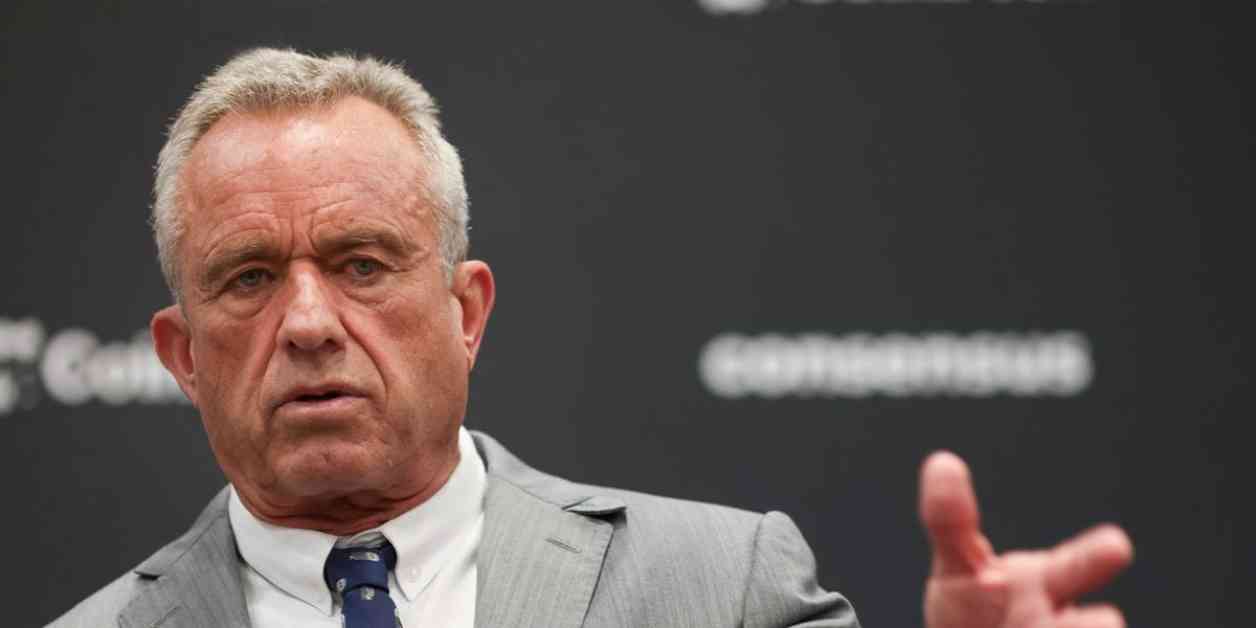The Kennedy family, known for their deep ties to the Democratic Party, made a surprising announcement as Robert F. Kennedy Jr. suspended his independent presidential campaign and threw his support behind former President Donald Trump. This unexpected move not only shocked the political world but also raised questions about the future direction of the Kennedy legacy.
Kennedy made the decision to withdraw his name from the ballots in 10 battleground states, citing concerns about his ability to secure a realistic path to victory amidst what he described as “relentless, systematic censorship and media control.” By stepping aside in these crucial states, Kennedy hoped to avoid splitting the vote and inadvertently handing the election to the Democrats, with whom he disagreed on many critical issues.
At a press event in Arizona, Kennedy expressed his intention to join Trump’s campaign and potentially serve in his administration if the former president were to win a second term. This endorsement marked a significant departure from the traditional political affiliations of the Kennedy family, as many members had already thrown their support behind President Joe Biden and Vice President Kamala Harris earlier in the campaign season.
Despite not receiving widespread support within his own family, Kennedy believed that aligning with Trump on key issues such as the war in Ukraine, child health initiatives, and free speech constraints was essential for the future of the country. This decision was described as “heart-wrenching” but ultimately driven by a sense of duty and conviction that this was the right path to take.
Kennedy’s absence on the ballot in battleground states shifted the focus of the election to a direct contest between Trump and Harris, with national polling indicating a slight advantage for the Vice President. However, Kennedy remained hopeful that he could still garner support outside of these critical states and make an impact on the overall outcome of the election.
As the political landscape continued to evolve, Trump’s attention turned towards promoting a new family business venture in the crypto sector. The launch of a decentralized finance (DeFi) platform called “The Defiant Ones” marked a significant shift in Trump’s views on digital assets, as he transitioned from being a crypto skeptic to a vocal advocate for the industry.
Kennedy’s decision to endorse Trump not only reshaped the dynamics of the election but also raised questions about the future of the Kennedy political dynasty. With the weight of the Kennedy name now behind the GOP candidate, the upcoming election promised to be a fiercely contested battle between two major parties with distinct visions for the future of the country.
In the midst of this political upheaval, Harris remained a key player in the race, with her views on crypto and emerging technologies still largely unknown. While her campaign had not revealed specific policy positions on these issues, an aide indicated that Harris would support policies that foster innovation and growth in the tech industry, reflecting a broader trend towards embracing digital assets and blockchain technology.
As the election drew closer, the stakes were higher than ever, with the outcome likely to shape the direction of the country for years to come. With Kennedy’s endorsement of Trump adding a new dimension to the race, the battle for the White House promised to be one of the most closely watched and fiercely contested elections in recent memory.

















